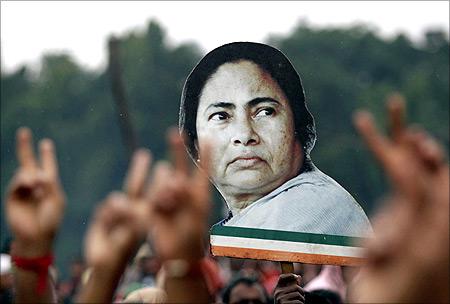
Trinamool Congress supremo and West Bengal Chief Minister Mamata Banerjee is a populist, but her political acts show she does not always do what she preaches.
While she has made it her business to oppose every move of the central government in keeping with her Ma Mati Manush plank, she has not shied away from allowing price increases in her state.
Banerjee has already allowed one in power rates, besides making milk dearer.
. . .
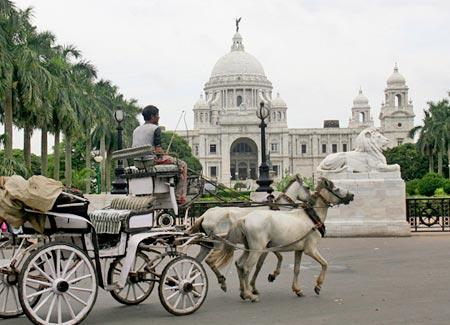
Also, the administration is considering a proposal to raise tram fares. Since the Trinamool Congress came to power, Banerjee has allowed prices across the state power utilities to be quietly increased three times, a cumulative rise of 29.5 per cent.
According to an official of the power ministry, the first of the increases, from Rs 4.27 per unit to Rs 4.71 per unit, was an initiative of the outgoing Left Front government.
In 2012, the Banerjee government gave the go-ahead to increase it twice.
. . .
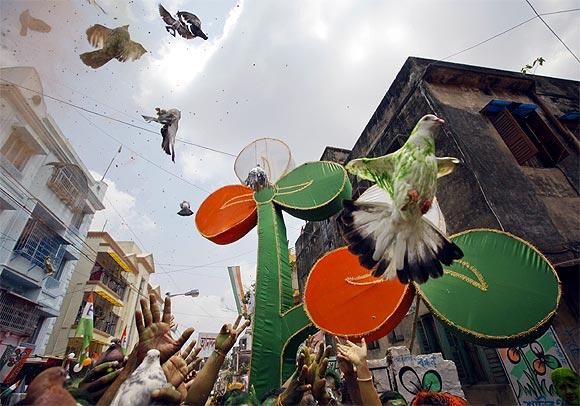
"The first such hike this year was from Rs 4.71 to Rs 5.07, and the second from Rs 5.07 to Rs 5.53, making a 17.41 per cent hike in January and February.
"It was a decision by the present government," the official said. West Bengal State Electricity Distribution Company is staring at a loss of Rs 2,500 crore (Rs 25 billion) in the current financial year.
While the move comes as a relief for the utilities, reeling under pressure after a coal price increase, the move shows the dual stance of the Trinamool Congress.
Banerjee sacked railways minister Dinesh Trivedi for raising passenger fares.
. . .
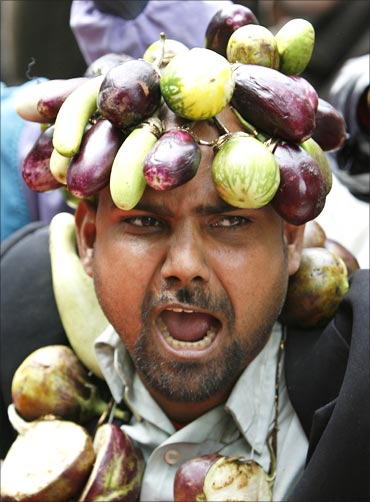
First class AC fares were proposed to be raised by as much as 30 paise a km.
The increase in other classes is: 15 paise a km for AC 2-tier travellers, 10 paise a km for 3-tier passengers and three paise a km for sleeper class.
Fares on suburban networks have become dearer by two paise per km and platform tickets to Rs 5 from Rs 3.
Banerjee has said she is ready to support the price increase in the fares for AC travellers. Ask the Opposition, and the opinion is that the move is a testament to the fact that Banerjee might dramatise, but will bow to pressures relating to governance as well.
. . .

"By increasing the electricity tariff, they have proved that though they dramatise incidents, the government in Bengal is following the same 'Manmohanomics', by putting pressure on the common man," said Communist Party of India-Marxist Central Committee member Mohammed Salim.
Besides power, milk, which could be regarded as one of the essentials in any kitchen, has also become dearer by Rs 6 per litre.
These are expected to go up by another Rs 4 per litre in the next two months.
. . .
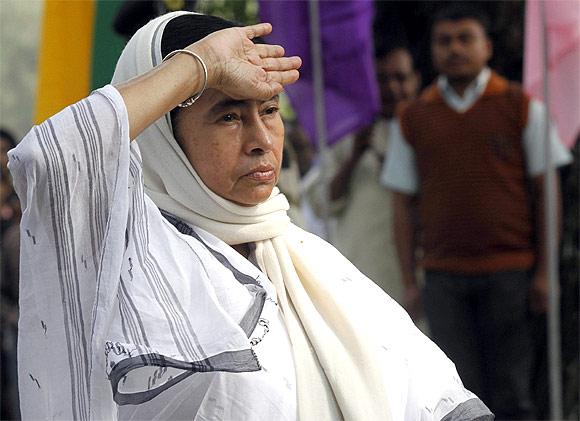
"We expect to end the year at Rs 40 per litre as opposed to Rs 30 a litre currently," said M K Jalan, chairman, Keventer Agro, which controls Metro Dairy.
Metro Dairy is a three-way joint venture between Keventer Agro, the West Bengal Milk Federation and the National Dairy Development Board.
Metro Dairy is also the market leader in West Bengal.
. . .
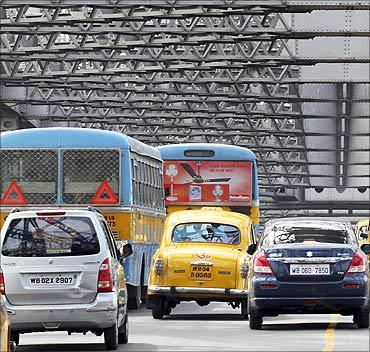
The third jolt might come from the transport sector.
After the government declared it would withdraw the annual Rs 600 crore (Rs 6 billion) subsidy from transport corporations, Calcutta Tramways Company has come out with a proposal to increase tram fare up to Rs 1.50 to revive the ailing transport systems.
"Our chairman, Shantilal Jain, has communicated the recommendations to the transport minister recently," a CTC official said.
As of now the fares for distances up to four km are Rs 4 and Rs 3.5 for first and second class, respectively, while for the remaining leg the fares are Rs 4.5 and Rs 4.
. . .
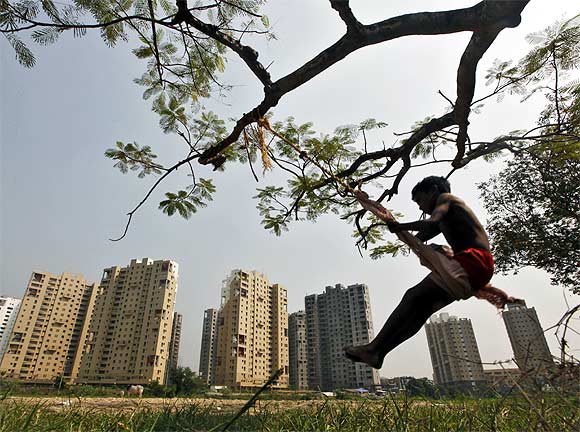
According to the proposal, there will be no class distinction and the basic fare would be Rs 5 and Rs 6 depending on the distance travelled.
State transport minister Madan Mitra said, "As of now I can say there will be no immediate fare hike."
Of the Rs 600 crore annual subsidy given by the state government to the five transport corporations, about one-third goes to CTC.
The annual revenue of the company from its tram and bus services is about Rs 50 crore (Rs 500 million), while it shells out about Rs 250 crore (Rs 2.5 billion) on salaries for its 6,500-plus employees, maintenance and other requirements.